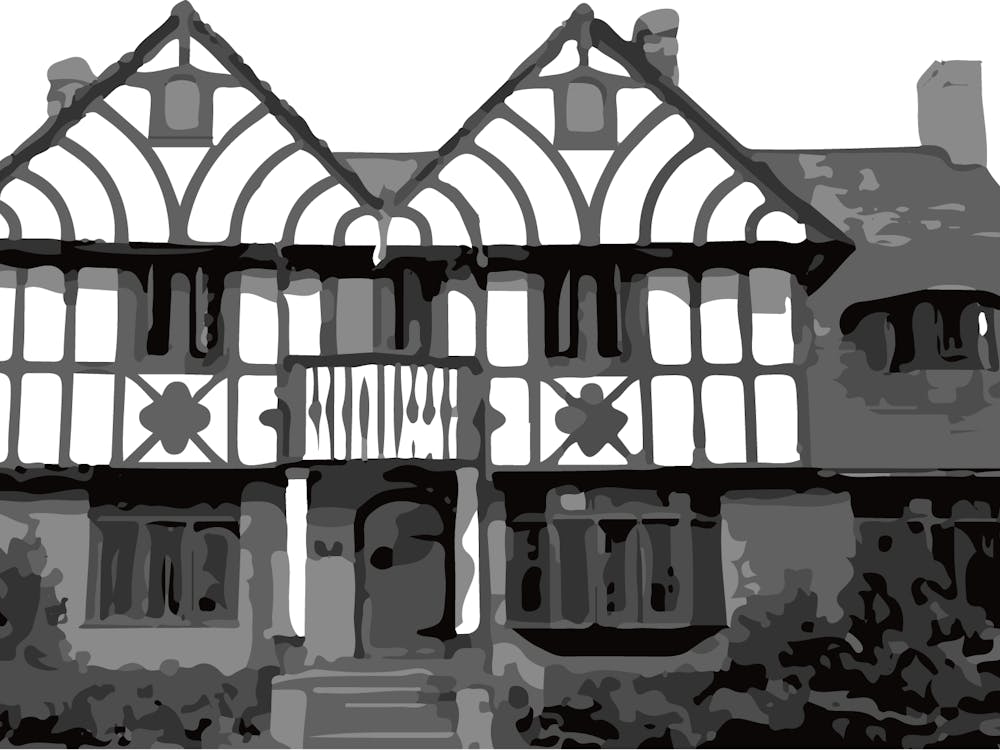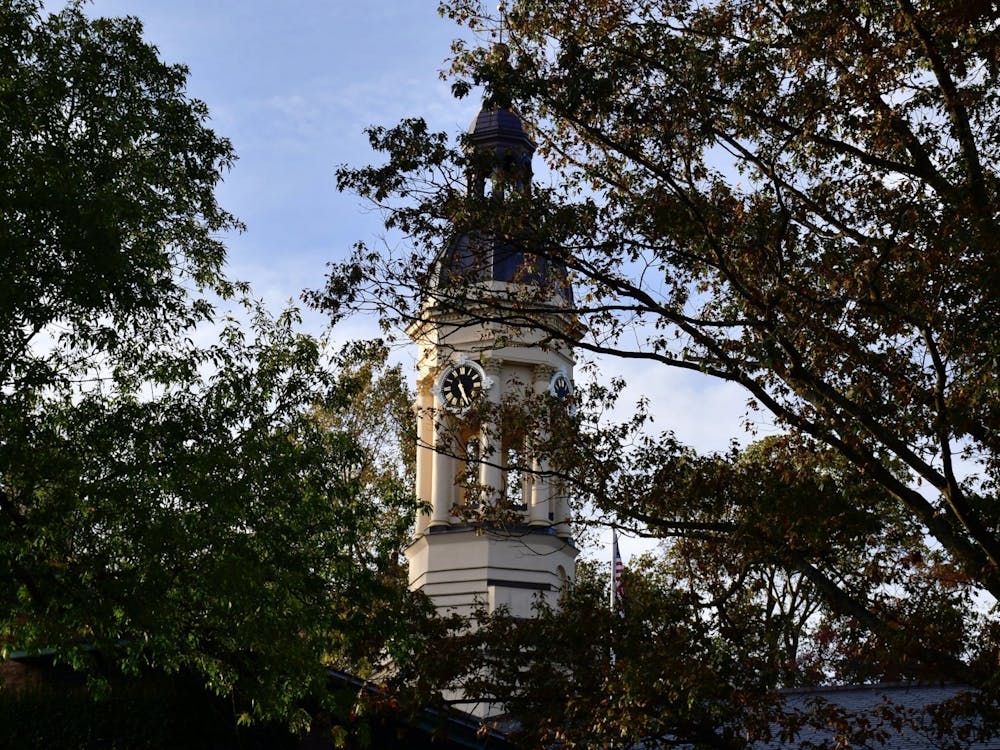“If liberty means anything at all, it means the right to tell people what they do not want to hear.” – George Orwell
The first amendment of the American constitution acknowledges freedom of speech as an unalienable right; a right that is fundamental to the functioning of a democratic society. According to this amendment, the government is prohibited from creating laws that suppress the people’s right to freedom of speech.
As written in the Bill of Rights, the amendment is written as such, “Congress shall make no law respecting an establishment of religion, or prohibiting the free exercise thereof; or abridging the freedom of speech, or of the press; or the right of the people peaceably to assemble, and to petition the Government for a redress of grievances.”
What does ‘freedom of speech’ mean in a university like Princeton, which prides itself for its diversity- encompassing not only culture and origin, but also thought and opinion. Moreover, how has the university upheld this right?
In an essay published in the Princeton Alumni Weekly, Jen Albinson ’05 discussed how students had created a ‘top ten list of Holocaust movies I’ve never seen but would like to’ in addition to an offensive list of ‘Facebook Groups You Hope Never to See’ in the Nassau Weekly and Princeton Tiger, respectively. Albinson noted the divisive conversation on campus that ensued, regarding when humor becomes insensitive.
Samantha Kors Harris ’99 and Harvey A. Silverglate ’64 added, in another Princeton Alumni Weekly article, that the authors were not punished for writing these articles. However, they stated that, “Princeton administrators during and shortly after the controversy made clear that Princeton students can indeed be disciplined for speech that, outside the bounds of campus, would without any doubt be protected by the First Amendment.”
The writers explained that the problem with Princeton’s policy on freedom of speech is that it conflicts with another policy of “Respect for Others.”
According to University-wide Regulations, “Actions which make the atmosphere intimidating, threatening, or hostile to individuals are therefore regarded as serious offenses. Abusive or harassing behavior, verbal or physical, which demeans, intimidates, threatens, or injures another because of personal characteristics or beliefs or their expression, is subject to University disciplinary sanctions as described above.” These penalties range from warning to disciplinary probation, withholding of degree, suspension and expulsion.

When Harris and Slivergate sent a letter to former President Tilghman, of the university, she denied Princeton’s policies as being restrictive and noted that no student had ever complained about them- that is up until this point. Therefore, as Harris and Silvergate argued, the university represents a standing that can be summarized as “[we] believe in free speech, but…” According to them, the omission of the administration reflected a “more profound decision to avoid the problem.”
Harvey A Silvergate graduated from the Harvard Law School and co-authored the book The Shadow University: The Betrayal of Liberty on America’s Campuses. He also co-founded the Foundation for Individual Rights in Education (FIRE), which he currently chairs. Samantha Kors Harris is the director of speech code research at FIRE and also graduated from the University of Pennsylvania Law School. Their organization FIRE is dedicated to defending American liberties on behalf of university students.
According to the FIRE website, Princeton has a red speech code rating. This speech code signifies that a university “has at least one policy that both clearly and substantially restricts freedom of speech.” In the description of this rating, the site details five other policies from the sexual discrimination and technology policies of university regulation that hinder freedom of speech.
Although the founding of FIRE only dates back to 1999, issues of freedom of speech amongst the student population previously existed through forms of student activism. According to a PAW historical timeline of student activism, in 1969 about 100 students protested against Princeton’s investments in South Africa during apartheid in 1969, by demonstrating outside of New South for more than 11 hours. Following this event, five students were put on disciplinary probation, and ten students were charged with “violating the University’s policy on protests.” Furthermore, when more than 200 students occupied and made a blockade of Nassau Hall for 28 hours, 88 demonstrators were arrested and given a warning for violating university regulations.

However, in 1984, Eric Frey ’85 wrote an article entitled ‘feelings of isolation cause student apathy on campus.’ Frey writes, “activism requires a special social atmosphere which is often lacking at Princeton. On the surface the campus appears to be the perfect place to establish friendships and find cliques. But, particularly around exam periods, it is impossible not to notice what a frighteningly isolating place this university can be for many people. More often than not friendships do not go beyond the ‘How’s it going?’ stage…”
By 1988, a new organization named the Students for Social Responsibility emerged on campus as a group that took radical approaches to campus and national issues. As noted in an article from the Daily Prince, a history lecturer by the name of Louis Rose GS ’80, who participated regularly in SSR meetings, commented that Princeton “is a conservative place. It tends to train students to go out into the world and serve those institutions of power which maintain the current situation in this country.”
More recently, according to PAW, issues of freedom of speech emerged when a student group named the Urban Congo posted videos of them drumming while wearing loincloths and face paint. This event, which occurred in 2015, was responded to with comments on Yik Yak that singled out students who had been offended by the video and stated that “students who thought Princeton was unwelcoming or racist simply should leave.” At the time, when President Eisgruber ’83 called for a gathering in the chapel, at least a dozen students stood up and turned their backs on him while he spoke, because “students had felt Eisgruber’s initial invitation did not sufficiently address how the events on campus had created a hostile climate for many minority students.”
Although Princeton did not respond to recent protests by the Black Justice League in 2015 with any punishments, the resulting conversation on campus, and creation of the Princeton Open Campus Coalition reveals how the tension between respectful conversation and freedom of speech continues to be a polemic topic on our campus. While it is largely agreed upon that maintaining respect on campus is of utmost importance, whether or not this is a serious infringement on students’ rights is a question we each have to answer for ourselves.
Editors Note: This piece is a column article and does not represent the official view of the Prince.







